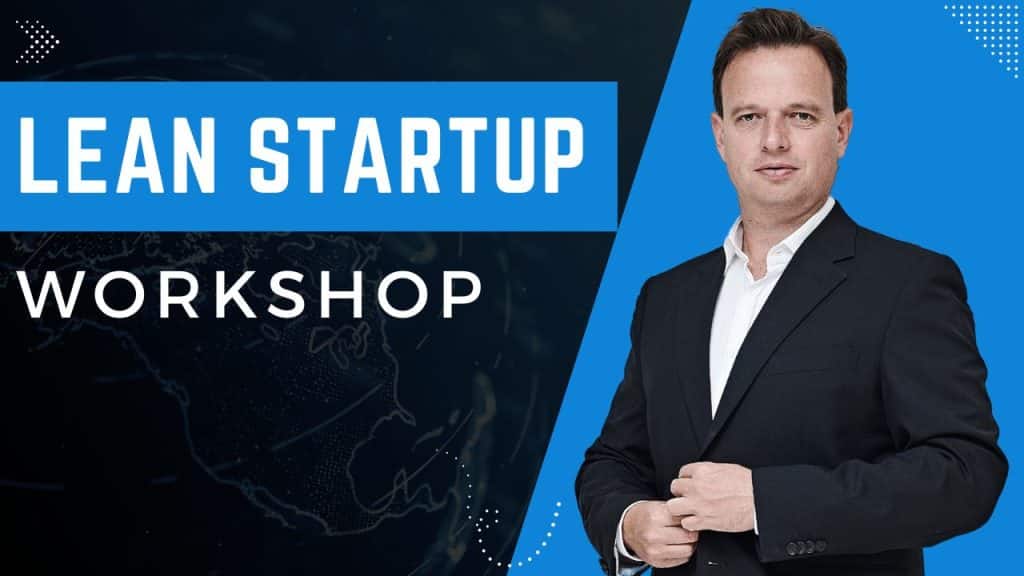
Most teams know what's not working.
They're just not sure how to fix it.
So they keep going. Keep hoping things improve.
Or they overcomplicate it—big plans, lengthy rollouts, and a lot of time spent trying to "get it right."
This workshop takes a different approach.
It's based on the core ideas from The Lean Startup: test small, learn fast, and iterate.
Not theory. Not frameworks. Just practical ways to improve how teams work—together and individually.
You don't need new tools. You don't need permission.
You just need a way to turn problems into experiments.
And that's what this session gives you.
What Participants Will Walk Away With
By attending this workshop, participants will:
- Shift from "solving" to "testing" as a way to approach team challenges.
- Get clearer on what's not working—and why.
- Practice designing small, low-risk experiments to improve how they work.
- Learn how to use feedback and simple data to guide decisions.
- Leave with a concrete plan to run one personal and one team experiment.
No new tools. No long checklists.
Just a practical mindset shift your team can carry forward into everything they do.
This practical 2-hour team development workshop is based on The Lean Startup principles, designed to help teams grow through experimentation, reflection, and continuous learning.
Let's get into it…
Learn Fast, Work Smarter
Duration: 2 hours
Purpose: Help your team adopt a mindset of experimentation, rapid learning, and data-driven improvement—both individually and together.
Workshop Objectives
- Learn how to apply Lean Startup principles to personal and team improvement
- Identify and challenge unproductive habits through experimentation
- Practise designing and testing simple, low-risk changes (MVPs)
- Use feedback and data to guide better decisions
- Commit to one individual and one team experiment for the week ahead
Materials Needed
- Sticky notes or index cards
- Whiteboard or flip chart
- Markers
- Timer
- Printed handouts (workshop process and summary of Lean Startup principles)
Workshop Plan
Part 1: Welcome and Setup (10 min)
- Share the purpose of the session:
- "Today is about learning how to test ideas quickly, learn from real data, and grow as a team by working smarter—not just harder."
- Introduce key Lean Startup terms in plain language:
- MVP (Minimum Viable Product) = simplest test of an idea
- Build-Measure-Learn = fast learning loop
- Validated Learning = using real feedback to improve
- Pivot or Persevere = adjust when needed
Part 2: What's Holding Us Back? (20 min)
Activity: Individual Reflection + Group Discussion
- Ask: "What's one thing in your work you keep doing even though it may not be working?"
- Write privately on sticky notes.
- Share a few examples.
- Cluster them into themes: communication, tools, meetings, unclear priorities, etc.
Facilitator Tip: Encourage honesty—frame this as learning, not blame.
Part 3: Rapid Experiment Design (30 min)
Activity: Turn Problems into MVPs
- Break into small groups or pairs.
- Choose one common challenge from earlier (e.g. "meetings feel unproductive").
- Ask:
- What's the smallest thing we could try this week to improve it?
- How would we measure if it worked?
- Design a simple "experiment" to run this week.
- Example:
- Change team check-in from 30 mins to 15 mins.
- Measure: Did we still cover what we needed? Did energy improve?
Part 4: Build-Measure-Learn Simulation (30 min)
Activity: Quick Innovation Challenge
- Give each group this prompt:
- "Design a new team ritual that boosts learning or connection."
- 10 minutes: Create a fast MVP (sketch it, name it, define how you'd test it).
- 10 minutes: Pitch it to another group and get feedback.
- 10 minutes: Reflect on what you'd change (the "pivot or persevere" moment).
Part 5: Commit to Learning (20 min)
Activity: Personal and Team Commitments
- Each person answers:
- What's one thing I will experiment with this week in my work?
- How will I measure if it's helping?
- As a team:
- Agree on one experiment to run together.
- Set a time to review what you've learned.
Part 6: Close and Reflect (10 min)
- Ask:
- What surprised you today?
- How did it feel to think like an experimenter?
- What do you want to take forward?
- Wrap up with this reminder:
- "You don't have to have all the answers—just a way to learn fast."
Facilitation Tips
- Keep the pace quick—don't let teams overthink.
- Use time limits to encourage "good enough" solutions.
- Remind them: progress beats perfection.
- Frame mistakes as data.
- Encourage small, safe experiments—not big risky changes.
Conclusion
Improvement doesn't have to be a big event.
Most of the time, it's about paying attention. Trying something. Learning. Adjusting.
This workshop doesn't promise breakthroughs or magic fixes. That's not the point.
The point is to help your team approach their work differently—to stop assuming, start testing, and build better ways of working over time.
It's a small shift, but one that changes how progress happens.
And once a team gets a taste of that?
They don't go back.
Because when improvement feels simple and within reach, people do it more often.
And that's how teams actually get better.
See you next week.

